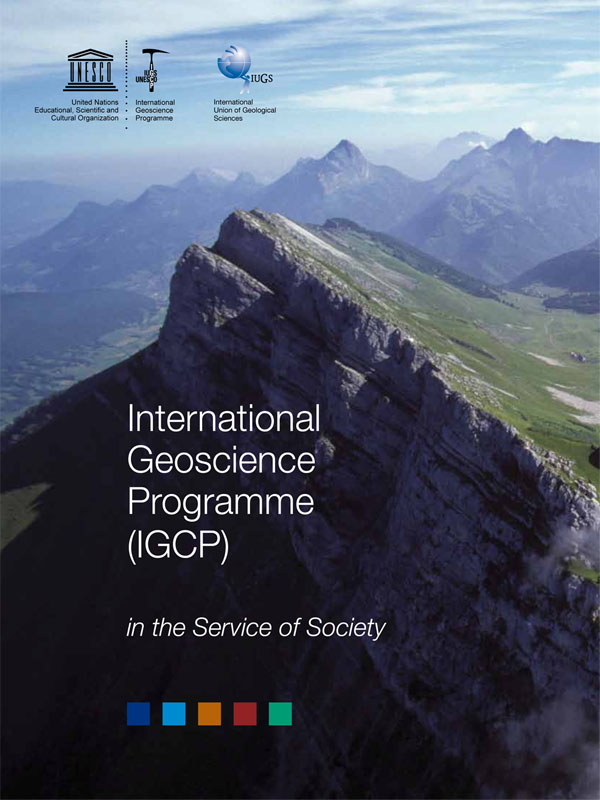Projects of the International Geoscience Programme

© Eugene Podolski
IGCP 650 - Snow laboratory for preliminary snow and firn-ice core samples processing and distribution at the HEIGE NSF/IGCP expedition base camp. Fedchenko Glacier, Pamir.
The Scientific Board of the International Geoscience Programme (IGCP) held its 43rd Session from 25 to 27 February 2015 and evaluated 42 projects consisting of ongoing projects and new proposals. 8 new projects have been approved and 5 projects will be on one extended term, which means they will remain active without funding from IGCP. In 2015, a total of 20 projects will be financed by UNESCO and IUGS.
If you want to join an IGCP project, please contact the project leader. If you want to propose a new IGCP project please go to “proposal submission”.
The Programme is supporting work on the following five themes:
Earth Resources: Sustaining our Society
Knowledge on natural resources - including minerals, hydrocarbons, geothermal energy, and water - and their management is the frontline of the struggle for more sustainable and equitable development. The environmentally responsible exploitation of these resources is a challenge for geoscience research. The progress of technological development is equally bound to this premise.
- IGCP 600-Metallogenesis of Collisional Orogens (SIDA Funds) - One extended term
- IGCP 637-Heritage Stone Designation - new
Global Change and the Evolution of Life: Evidence from the geological record
Changes in the Earth's climate and of life on Earth are preserved in the geologic record. Ice and dust records, terrestrial and ocean sediments, and sequences of fossil plant and animal assemblages all tell the story of our Planet which holds important lessons about present-day environmental challenges and the ways to mitigate and manage environmental damage.
- IGCP 587-The Ediacaran (Vendian) Puzzle - One extended term
- IGCP 591-The Early to Middle Palaeozoic Revolution
- IGCP 596-Climate Change and Biodiversity Patterns
- IGCP 599-The Changing Early Earth (SIDA Funds) - One extended term
- IGCP 608-Asia-Pacific Cretaceous Ecosystems
- IGCP 609-Cretaceous Sea-Level Changes
- IGCP 610-From the Caspian to Mediterranean: Environmental Change and Human Response during the Quaternary
- IGCP 624-OneGeology
- IGCP 630-Permian-Triassic Climatic and Environmental Extremes and biotic responses
- IGCP 632-Continental Crisis of the Jurassic
- IGCP 650-3rd Pamir High Elevation International Geophysical Expedition - new
Geohazards: Mitigating the risks
Geohazards include earthquakes, volcanic activity, landslides, tsunamis, floods, meteorite impacts and the health hazards of geologic materials, and can range from local events such as a rock slide or coastal erosion to events that threaten humankind such as a supervolcano or meteorite impact. Earth scientists undertake research to better understand these hazards and contribute to risk management policies related to social and technical issues associated with geohazards as well as disaster mitigation.
Hydrogeology: Geoscience of the water cycle
Life on Earth depends on water, and its sustainable use is crucial for continued human activities. Earth’s water cycle involves studying, understanding, and managing groundwater systems, hydrogeology, as well as sources, contamination and vulnerability of water systems.
Geodynamic: Control our environment
Our habitable environment at the Earth's surface is linked and controlled by processes occurring deep within the Earth. Earth scientists use, inter alia, geophysical techniques to study deep Earth processes ranging from changes in the Earth's magnetic field to plate tectonics to understand better the Earth as a dynamic planet. Those processes are also relevant to natural resource exploration, distribution and management of groundwater resources and the study and mitigation of natural hazards such as earthquakes.
- IGCP 574-Bending and bent orogens and cont. ribbons - One extended term
- IGCP 589-Development of the Asian Tethyan Realm
- IGCP 592-Continental Construction in Central Asia
- IGCP 597-Amalgamation and Breakup Pangæa - One extended term
- IGCP 624-OneGeology
- IGCP 628-The Gondwana Map Project
- IGCP 646-Dynamic Interaction in Tropical Africa - new
- IGCP 648-Supercontinent Cycles and Global Geodynamics - new
- IGCP 649-Diamonds and Recycled Mantle - new




